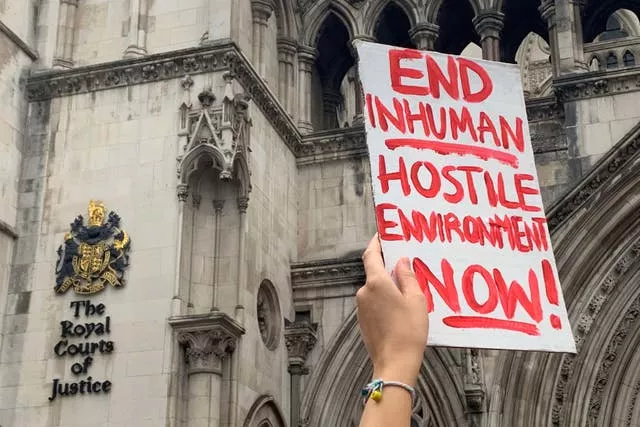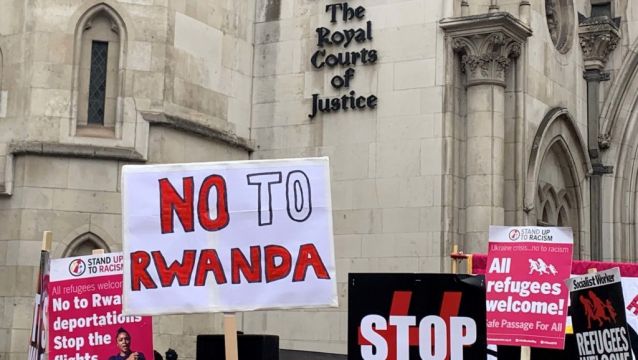The Court of Appeal is due to rule on legal challenges over the British government plans to send asylum seekers to Rwanda.
In December last year, two judges at the High Court dismissed a series of legal bids against the government’s plan to provide asylum seekers with a one-way ticket to the east African country.
However, Lord Justice Lewis and Mr Justice Swift also gave the go-ahead to several individual asylum seekers and the charity Asylum Aid to challenge their decision.
On Thursday, the Lord Chief Justice Lord Burnett, Sir Geoffrey Vos and Lord Justice Underhill are due to give their decision on the bid to overturn the previous ruling.
At a hearing in April, lawyers for the group of asylum seekers argued the High Court “showed excessive deference” to the Home Office’s assessment that assurances made by the Rwandan authorities “provide a sufficient guarantee to protect relocated asylum seekers” from a risk of torture or inhuman treatment.

The appeal judges were told that material provided by the Rwandan authorities “lacked credibility, consisting of blanket denials and clear contradictions”.
Charity Freedom from Torture, which intervened in the appeal, also argued the speed of the process means there is no “adequate opportunity” to identify torture survivors.
Lawyers for the Home Office opposed the appeal, telling the court the Rwandan government has “indicated a clear willingness to co-operate with international monitoring mechanisms” and that there are “reciprocal obligations with strong incentives for compliance”.
The hearing was told that some evidence about whether the Rwandan government would comply with its obligations came from the Foreign, Commonwealth and Development Office “based on experience of bilateral relations extending over almost 25 years” and that the Government is “confident the Rwandan authorities will comply with the assurances”.
The Court of Appeal’s ruling will come days after the Home Office’s own figures showed the Government could spend £169,000 on every asylum seeker forcibly removed to a third country such as Rwanda.
Nearly two in five people would need to be deterred from crossing the Channel in small boats for the the Illegal Migration Bill to break even, the economic impact assessment published on Monday said.
The £169,000 cost includes flights and detention, as well as a £105,000 per person payment to third countries.
However, the sum is an estimate not based on the true cost of the “commercially sensitive” Rwanda scheme.
If passed, the Bill would see the law changed so that people who come to the UK illegally through a safe country are not allowed to stay – instead being detained and removed, either to their home country or a country such as Rwanda.
The appeal judges are due to hand down their decision on Thursday at 10am.







